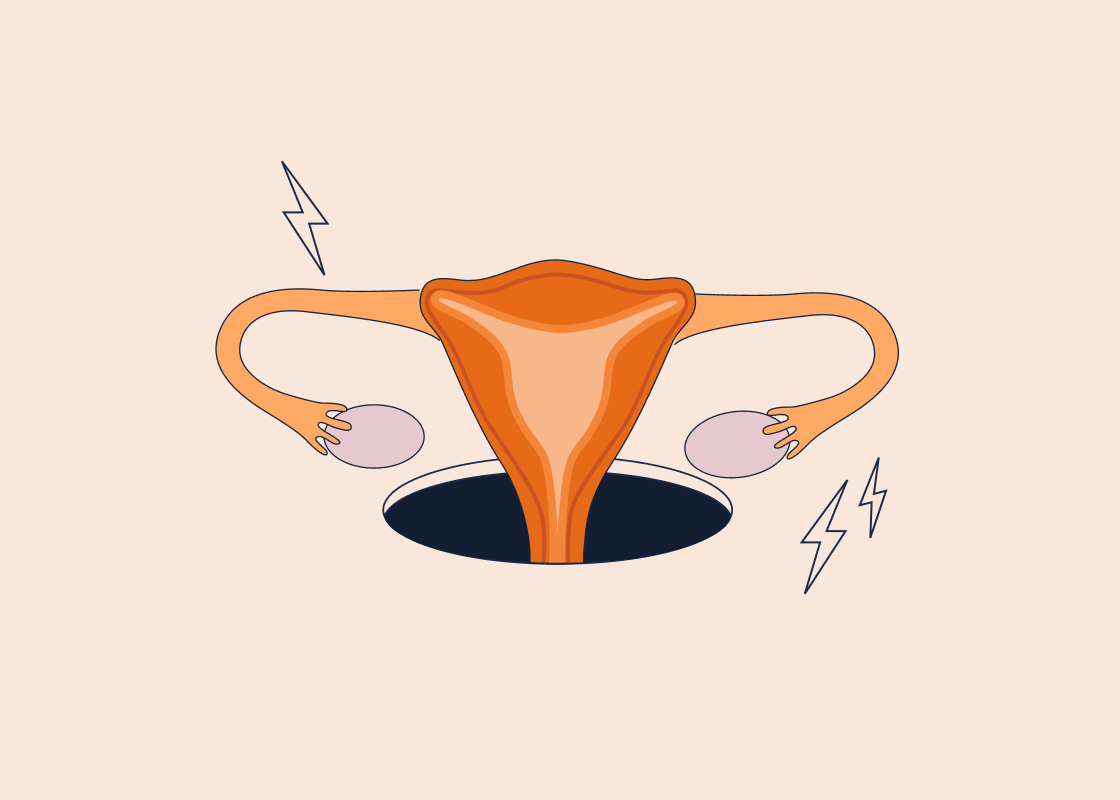Before getting into irregularities, let's start by defining what a regular period is. A 28-day cycle with a period that lasts 4-7 days is just a rough average. In truth, everyone's "normal" is a bit different, and the best way to figure it out is by tracking different factors related to your period.
A period is considered irregular if the timing or flow is not within normal ranges or if you experience any unusual changes or pain.
How to Spot an Irregular Period
Timing
- Cycle length - A cycle that takes place every 21 to 35 days with a period that lasts between 2 to 8 days is within the normal range. A cycle is the number of days between the first day of your period each month. So if your period started on January 1st and the next period started on January 27th your cycle would be 26 days [1].
- Cycle regularity - While some variation in the length of your cycle is normal if your period is 21 days one month and 35 days the next, that would be a cause for concern even though it's within a "normal" range [3].
Flow
-
Flow - Menstrual flow is the amount of blood loss during your period. Tracking your flow is useful so that you can notice if your flow becomes lighter or heavier than usual.
Menorrhagia is the term for excessive or prolonged bleeding. If you find yourself changing a pad or tampon more than once every two hours or if your period lasts longer than 7 days, contact your doctor as too much blood loss can lead to anaemia or may be a sign of ectopic pregnancy or miscarriage [3].
Additionally, while small blood clots are normal, larger clots may signify an underlying problem. Generally, a dime-sized clot is normal, while clots bigger than a quarter should be checked out [2].
- Abnormal bleeding - Are you noticing any blood between periods? While some spotting during ovulation is normal for some menstruators, bleeding between periods is generally considered irregular and should be discussed with your doctor [3].
Other Symptoms
- Pain - Unfortunately for many, cramps are part of the package deal that comes with periods. While some pain is normal, excessive pain with nausea or vomiting isn't. If your pain is interfering with daily living or if you notice changes, that might be a sign to get checked out and find a way to ease the pain [2].
-
Changes - For some, mood or behavioural changes or symptoms such as headaches, bowel symptoms, and breast tenderness are completely normal. It's worth tracking these symptoms so that you know what's normal for you and can be sure when a new symptom pops up [2].
What causes Irregularities?
So what causes these irregularities? Well, it depends. There are times in life when irregular periods are completely normal.
- Menarche is the term used for the first period that many people with uterus get when they're between 8 to 15 years old. During the first 3 years, the cycles can be erratic, but they will normalize in time and become more regular [2].
- Perimenopause is the period of time before menopause when a person’s period begins to naturally come to an end. During this time it's normal for periods to start occurring less frequently. Menopause occurs when someone doesn't have their period for 12 months in a row. This usually occurs between the ages of 45 to 55 for most menstruators [2].
- An occasional irregular period now and then is totally normal. In times of stress, such as an illness or during travel, it's possible to have a missed period or have some spotting. Good sleep hygiene and maintaining a healthy weight might get you back on track. If your period doesn't normalize within 90 days consult a doctor to find out what's happening [5].
On the other hand, irregularities might be caused by external factors such as medication, pregnancy, or certain medical conditions.
- A missed period can be an early sign of pregnancy when it's normal for menstruation to stop. After childbirth, a miscarriage, or abortion it can take a couple of months for the period cycle to become regular again. Due to a hormone called prolactin, breastfeeding after childbirth might delay regular menstruation even longer [7].
- Certain medications, such as steroids or blood thinners, might affect your menstruation. Talk to your doctor about which medications you're taking and how they could be affecting your menstrual cycle [5].
- Different forms of birth control will affect your menstrual cycle depending on the method. Talk to your doctor about what to expect from the type of birth control that you are using [5].
-
Conditions such as polycystic ovarian syndrome (PCOS), anovulation, eating disorders, pelvic inflammatory disease, premature ovarian failure, problems with blood clotting, or growths in the lining of your uterus (Adenomyosis) could cause changes in your menstrual cycle [3].
If you're experiencing symptoms that worry you, the best option is always to talk to your doctor about diagnosis and treatment options.
What to do about it?
Tracking your cycle and symptoms associated with your period is the best way to know when changes occur and what is irregular for you. There are multiple period trackers available as apps as well as the inne minilab to keep track of your ovulation. The minilab works by measuring the hormone progesterone in your saliva and can help to notice irregularities and confirm ovulation.
For those that are trying to get pregnant, irregular periods can be extra frustrating. Tracking ovulation can be one way to help with timing and remove uncertainty from the process.
Even if your period works like clockwork, arriving the moment you expect it to and lasting exactly 2-6 days, it's normal for bodies to change over time. Whether it's stress or your body is entering the menopausal period, knowing your "normal" and paying attention to changes by tracking them is invaluable for when those changes do inevitably come.
References
- Reed BG, Carr BR. The Normal Menstrual Cycle and the Control of Ovulation. [Updated 2018 Aug 5]. In: Feingold KR, Anawalt B, Boyce A, et al., editors. Endotext [Internet]. South Dartmouth (MA): MDText.com, Inc.; 2000-. Available from: https://www.ncbi.nlm.nih.gov/books/NBK279054/
- https://www.womenshealth.gov/menstrual-cycle/your-menstrual-cycle
- https://www.acog.org/womens-health/faqs/abnormal-uterine-bleeding
- https://www.pharllc.com/wp-content/uploads/2014/03/Fraser-Semin-Reprod-Med-2011.pdf
- https://my.clevelandclinic.org/health/diseases/14633-abnormal-menstruation-periods
- https://www.mayoclinic.org/healthy-lifestyle/womens-health/in-depth/menstrual-cycle/art-20047186
- Chao S. The effect of lactation on ovulation and fertility. Clin Perinatol. 1987 Mar;14(1):39-50. PMID: 3549114. https://pubmed.ncbi.nlm.nih.gov/3549114/



